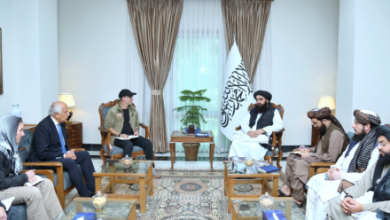145 Million Afghani Distributed to Returnees Deported from Pakistan
Officials at the temporary Omari Camp in Torkham township have distributed 145 million afghani since April to nearly 20,000 families forcibly deported from Pakistan. Abdul Hadi Akhundzada, head of the camp’s financial committee, explained that families with two to four members received 2,000 afghani per person, while families of five or more received 10,000 afghani each.
Returnees Face Severe Challenges
Many deported Afghans are struggling with unemployment and lack of shelter. Nik Mohammad, a returnee, described how his family had various jobs in Pakistan but were forced to leave everything behind due to worsening conditions and expulsions. Safiullah, another deportee, highlighted the absence of housing and the need to stay with relatives as an immediate solution.
Massive Return Wave Strains Afghanistan
Since Pakistan’s “Illegal Foreigners Repatriation Plan” began in September 2023, over one million Afghans have been forced to return, with an estimated 600,000 more expected in 2025. This influx adds to about one million Afghans expelled from Iran in 2024, creating one of Asia’s largest rapid population shifts. Afghanistan, already facing economic collapse and widespread poverty, is ill-equipped to support these returnees, many of whom arrive with no belongings, land, or shelter.
Humanitarian Response and Housing Efforts
The Afghan government, led by the Housing and Urban Development Ministry’s Settlement Committee, has initiated construction of residential towns in several provinces to provide housing for returnees. However, the scale of need is immense, and international aid is limited. NGOs and the UN have launched response plans, but funding gaps remain significant, with urgent calls for investment in durable solutions like land access, livelihoods, education, and legal documentation.
Uncertain Future for Returnees
Many deportees, including those born in Pakistan, face uncertain futures amid high unemployment and poverty in Afghanistan. Ezatullah, who spent his life working in Pakistan, expressed despair over losing all possessions and not knowing how to support his family. Children, who make up 60% of returnees, face additional challenges, especially girls who are barred from government education beyond sixth grade.
Context of Deportations and Regional Tensions
Pakistan’s deportation campaign, intensified since early 2024, is part of efforts to expel “illegal foreigners,” citing security concerns. Despite official assurances of respectful treatment, many returnees report harassment and forced sales of property at low prices. Rising tensions between Pakistan and India, with accusations involving militants operating from Afghanistan, may further complicate the situation for Afghan refugees in Pakistan.
This expanded report highlights the financial aid distribution, the dire challenges faced by deportees, the scale of returns, governmental and humanitarian responses, and the broader geopolitical context affecting Afghan returnees from Pakistan.





